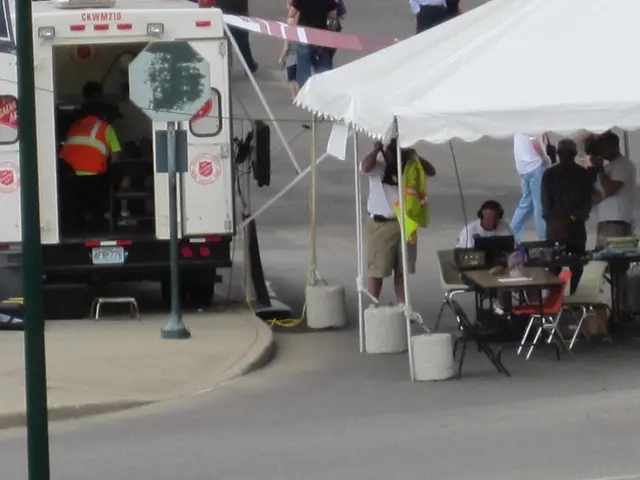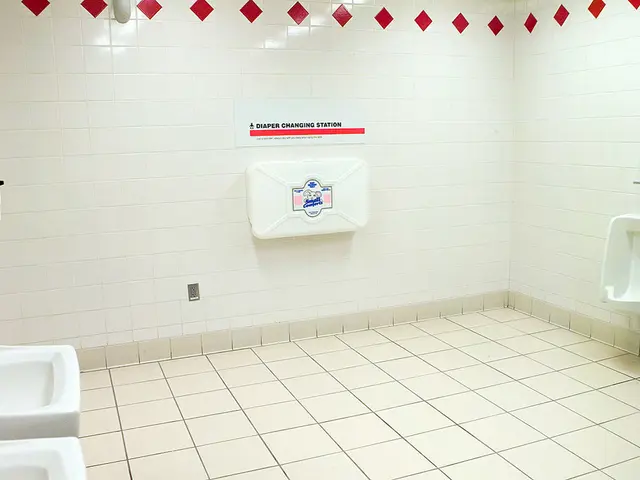Local Elections in Kyrgyzstan Offer Novel Political Entities, Yet Familiar Personalities Persist
Politics in Kyrgyzstan: A Wild Ride
Every local election in Kyrgyzstan is a spectacle of wild promises and exceptional oddities. This year, the usual suspects are up to their old tricks – promising elevators in every apartment block, free homes for teachers and doctors, bids for the Olympics, and legalizing cannabis.
But beneath the surface, things are heating up. The April 11 election isn't just about electing deputies to 448 local councils nationwide, but also about confirming a constitutional overhaul that weakens the parliament and strengthens the presidency.
Analyst Denis Berdakov explains, "The parliament's role is shrinking rapidly, and those with media clout, influence, and money will move towards the city councils. Given the increasing presidential control over key levers, the local council elections have been thrown open to free, democratic elections – sounds paradoxical, right?"
Nowhere is the scramble for seats more intense than in Bishkek, a bustling and increasingly polluted metropolis of over a million people. Almost 1,900 candidates from 25 parties are vying for just 45 spots on the council. But why would anyone want to sit on a local council, you ask? No salary, no perks, and plenty of low-profile, boring utility maintenance and roadwork supervision.
The upside? Local deputies hold the power to decide on the use of municipal land, and in Bishkek, that means lucrative leasing opportunities for private developers. It's no coincidence that one-third of the outgoing Bishkek city council members are tied to the building industry.
In 2019, the city council approved a Detailed Planning Project that aimed to demolish sprawling Soviet-era buildings and replace them with taller apartments. The plan was scrapped only after fierce opposition from citizens and intervention from prosecutors.
With established parties in disarray after so many political upheavals, smaller parties stand a chance this election. Analyst Berdakov adds, "These elections are relatively free and competitive. It's an opportunity for new parties to shine."
Yet, the scene may not be as new as it seems. News website Kloop has uncovered dozens of familiar names on local council election party lists – politicians who have previously tried to run for parliament under the now-tainted parties tied to former President Sooronbai Jeenbekov and corrupt former customs boss Rayimbek Matraimov.
Even President Sadyr Japarov's party, Ata-Jurt Kyrgyzstan, faces questions over its association with his close allies. One candidate for the party running in the southern Jalal-Abad region is Tai-Muras Tashiyev, the son of the current head of the security services and longtime Japarov associate, Kamchybek Tashiyev.
In a positive note for smaller parties, the target number of votes needed to get onto the council in Bishkek is relatively low. With estimates suggesting less than half of eligible voters will actually cast ballots, parties might need only 13,000 votes to secure a representative on the council.
However, faith in the electoral process has waned as the same faces keep getting elected and failing to fulfill their grand promises. Elections expert Atyr Abdrakhmatova forecasts a low turnout due to widespread disillusionment.
Local elections in Kyrgyzstan are always a rollercoaster ride – who will win, who will lose, and which promises will be forgotten by the time the parties gather for the next round? Only time will tell.
The disarray among established parties in Kyrgyzstan's politics has created opportunities for smaller parties in the local elections, as revealed by analyst Denis Berdakov. Yet, some candidates with familiar names, linked to former President Sooronbai Jeenbekov and corrupt figures like Rayimbek Matraimov, have resurfaced on local council election party lists, raising concerns about the transparency of the electoral process. Despite this, the target number of votes needed to secure a representative on the council in Bishkek is relatively low, potentially enabling new parties to gain representation if less than half of eligible voters cast their ballots. However, the recurring issues of unfulfilled promises and faith in the electoral process waning due to perpetual disillusionment among the public suggest that local elections in Kyrgyzstan will continue to be accompanied by skepticism and uncertainty. Furthermore, issues such as migration, war-and-conflicts, policy-and-legislation, crime-and-justice, and car-accidents have taken a backseat in the election discourse, with the focus primarily on local policy decisions, such as the use of municipal land, which hold significant lucrative leasing opportunities for private developers.








